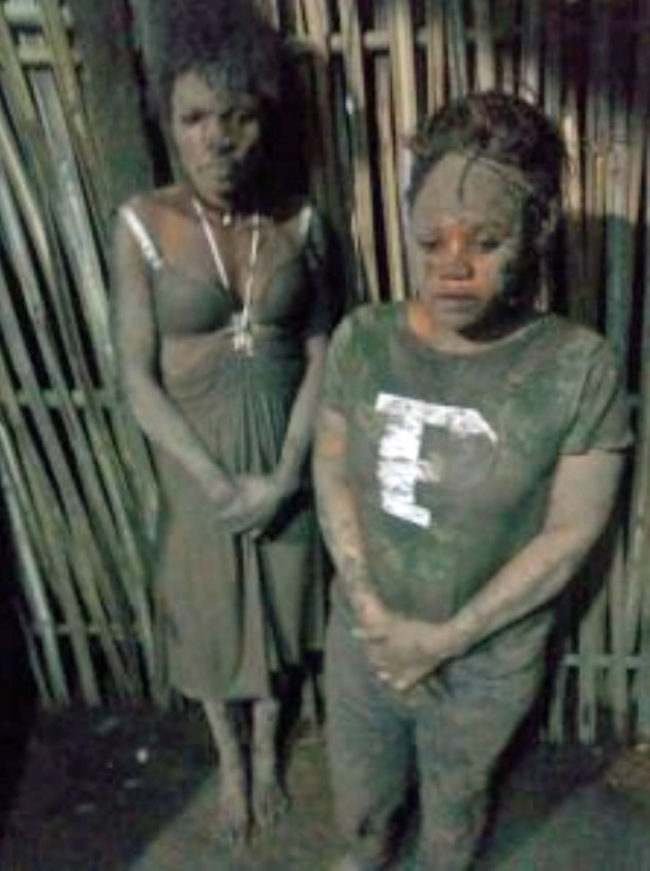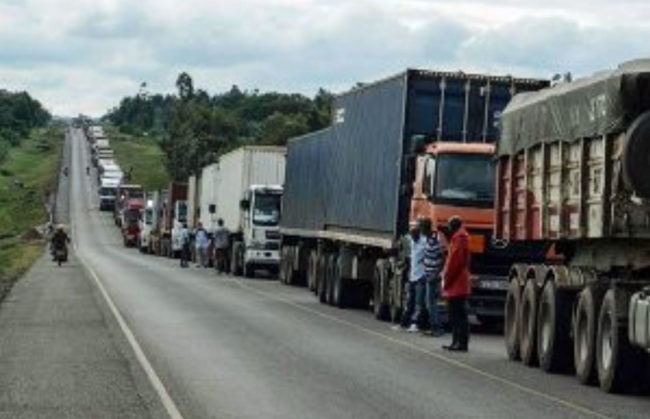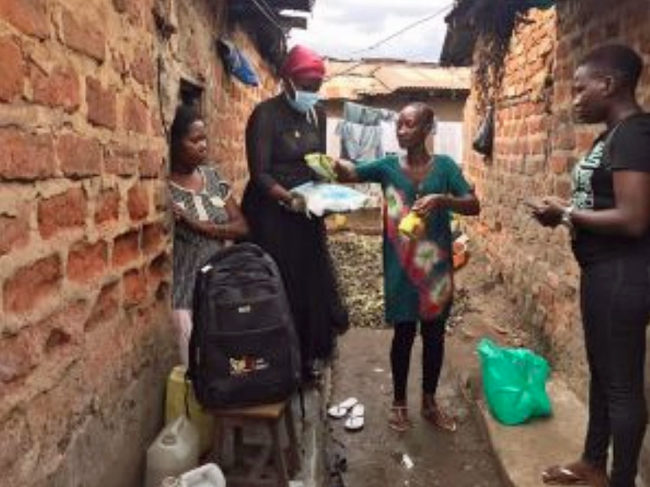Advocates for human rights, LGBT people and sex workers last week denounced raids, arrests, extortion, and attacks by Ugandan police and officials enforcing Covid-19 lockdown regulations.
From the African Human Rights Media Network

Late last month, Ugandan security forces beat these women and ordered them to roll on the ground and smear mud on their private parts as the officers laughed at them. The officers have since been charged.
By Kikonyogo Kivumbi
Attacks by police, Local Defense Units (LDUs), and Resident District Commissioners (RDCs) occurred at the end of April, targeting sex workers, barmaids and other vulnerable communities, advocates said.
In a press statement issued May 01 in Kampala, the human rights defenders are demanding that:
- Police drop all charges and release those arrested immediately;
- The national COVID-19 Task Force leaders meet with sex worker networks to agree on howt o safeguard the health and welfare of sex workers and their families during the lockdown; and
- An emergency strategy be developed to meet the needs of sex workers and their communities with social protection as a cornerstone of the Covid-19 response.
“Over the last 14 days, we have received reports of 117 women who have been arrested—and 71 of those have been within the last 48 hours through raids in Lira, Wakiso, Masaka, Kampala, Oyamu, Mbale, Nakasongola and Kasese. Sex workers are being targeted with violence, blackmail, and arrest by police,” said Macklean Kyomya, executive director of the Alliance of Women Advocating for Change, an umbrella network of grassroots sex worker-led organisations.
“Sex workers are indispensable allies in securing widespread adoption of effective public health measures,” said Daisy Nakato Namakula, national coordinator of Uganda Network of Sex Worker Organisations. “When sex workers are empowered and their human rights are respected, they can help communities rapidly adopt protective measures—we have seen this with HIV, and it should be the approach of COVID-19 as well. Instead, we are being attacked and discriminated against.
Uganda currently has 81 confirmed cases of Covid-19, according to the Ministry of Health. A number of new cases are being reported arising from tests at border points between Uganda and Kenya. The cases are of truck drivers. It is alleged that the truck drivers are clients of most sex workers along the routes they ply as they bring in cargo. This has forced Ugandan government to issue new guidelines to cargo truck drivers.
The latest attacks on sex workers and vulnerable women follows President Yoweri Museveni’s latest national address on April 28 in which he specifically cautioned Ugandan sex workers against doing their business with truck drivers as a means of avoiding Covid-19 infections. (See: 51:06 of the video.) The President said the sex workers should be supported not to depend on income from truck drivers. But the security forces appears to have misread the presidential advisory.
Many sex workers and women who have sex with women are stuck at their working sites / brothels due to the national lockdown that seeks to limit the spread of Covid-19. They cannot move back to their homes, nor upcountry.

Trucks await clearance to enter Uganda at Malaba border between Uganda and Kenya. (Photo courtesy of Daily Nation)
The activists’ statement is reproduced verbatim here:
For Immediate Release: 1 May 2020
Contact: Macklean Kyomya, AWAC: [email protected] +256774603754
Daisy Nakato, UNESO: [email protected] +256782669542
Uganda’s COVID19 Response is Terrorizing Women with
Arbitrary Detention, Blackmail, and Violence
(Kampala) The Uganda Key Populations Consortium (UKPC) and other civil society
organizations strongly denounced raids, arrests, extortion, and violent attacks during the last 48hours targeting sex workers, barmaids and other vulnerable communities by police, Local Defense Units (LDUs), and Resident District Commissioners (RDCs).“
Over the last 14 days, we have received reports of 117 women who have been arrested—and 71 of those have been within the last 48 hours through raids in Lira, Wakiso, Masaka, Kampala,Oyamu, Mbale, Nakasongola and Kasese. Sex workers are being targeted with violence, blackmail, and arrest by police,” said Macklean Kyomya, Executive Director, Alliance of Women Advocating for Change, an umbrella network of grassroots sex worker-led organisations,
“Women doing sex work and their families were already starving because local government officials have denied them food aid. HIV-positive sex workers and their children are already struggling to get HIV treatment refills, PrEP, STI treatment and contraception because of poor government planning. Now they are being brutalized and traumatized, and forced to choose between starving, isolated with no income or working while risking their own health and safety.
“Enough is enough. Human rights violations are spreading faster than COVID-19 in Uganda.”
Activists report that since the Ministry of Health began focusing on testing of cargo transporters from Uganda, Tanzania and Kenya, sex workers have been targeted for violence and further criminalisation because of their contact with truck drivers—who frequently make up a large number of sex workers’ clients.
“Sex workers are indispensable allies in securing widespread adoption of effective public health measures,” said Daisy Nakato Namakula, National Coordinator of Uganda Network of Sex Worker Organisations. “When sex workers are empowered and their human rights are respected, they can help communities rapidly adopt protective measures—we have seen this with HIV, and it should be the approach of COVID-19 as well. Instead, we are being attacked
and discriminated against.”
Civil society groups are demanding:

Sex-worker activists distribute relief food items to their peers in a Kampala brothel. (Courtesy photo)
1) Police drop all charges and release those arrested immediately;
2) COVID-19 Task Force leaders meet with sex worker networks to agree on how
to safeguard the health and welfare of sex workers and their families during the lockdown; and
3) Develop an emergency strategy to meet the needs of sex workers and their communities with social protection as a cornerstone of the COVID-19 response.
COMMENTS